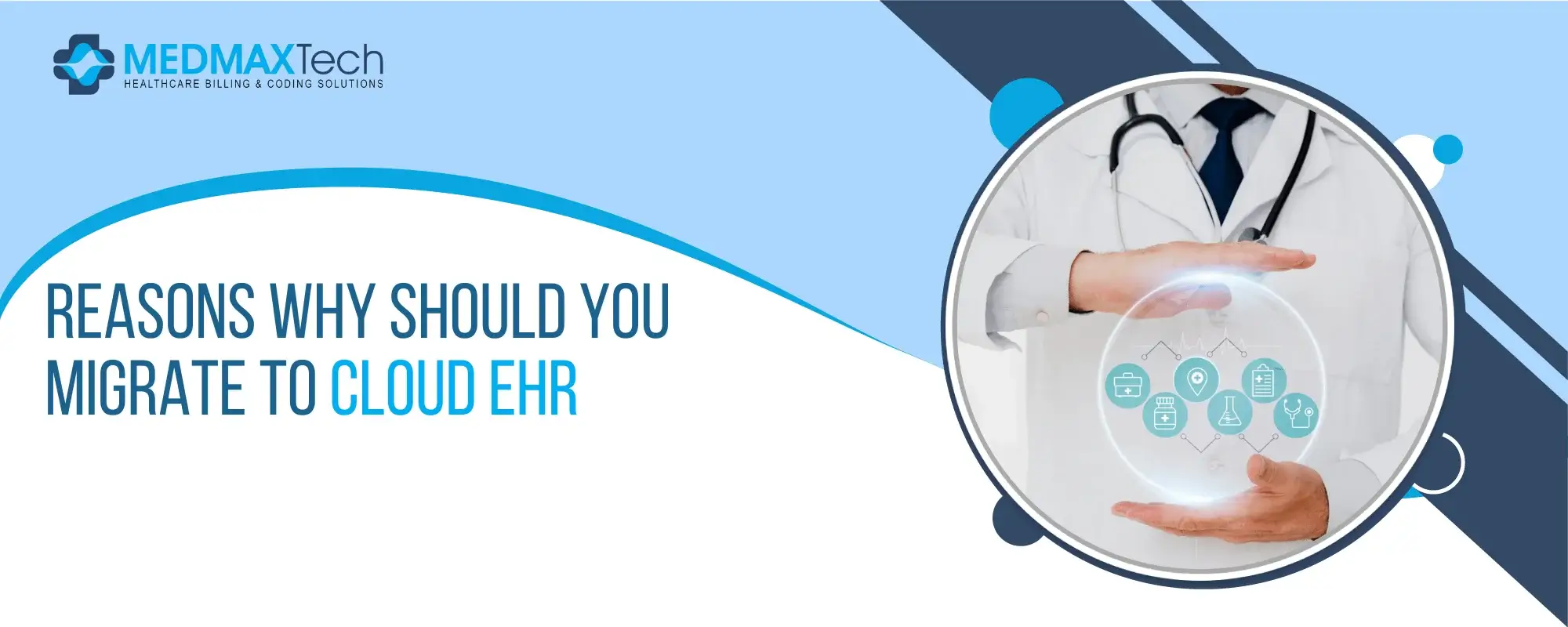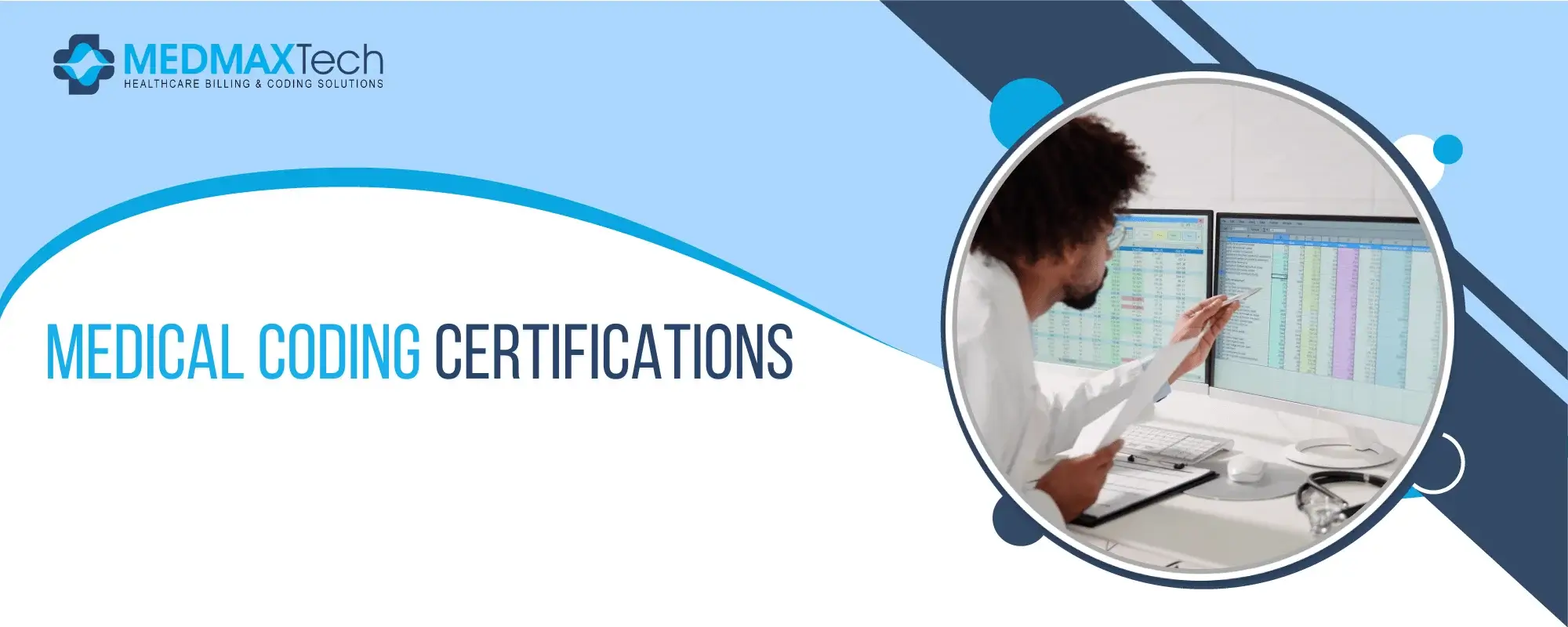
Reasons Why Should You Migrate To Cloud EHR
Migrating to the cloud EHR in today’s digital world is a snap when you consider cost savings, security, privacy, scalability, interoperability potential, work, and efficiency by using medical billing companies.
With these advantages to keep in mind, it’s no wonder EHR solutions are at the top of the list of services healthcare revenue cycle management companies want to migrate to the cloud. According to a 2020 study, nearly 60 percent of small hospitals said they doubt current healthcare IT offers business value, and more than a quarter are considering cloud-based replacement systems.
Cloud-based EHR solutions allow users to access data via the Internet, while client-server systems are stored in-house and require the installation of a server, hardware, and software on-site. Additionally, new legislation in the United States designed to improve interoperability between clinical systems and healthcare providers and facilitate the patients with access to their healthcare data is also forcing a widespread migration to the cloud in healthcare.
Reasons Medical Billing And Coding Companies Need To Migrate To Cloud EHR
1. Your Legacy System Is Causing You:
With legacy on-premises systems, organizations must purchase the latest hardware and software, as well as extort large up-front payments to install and license these systems. Some client-server systems can cost upwards of $40,000 to set up, and that’s pretty conservative.
With a cloud-based system, a medical billing company gets more for their money. With an affordable monthly cost, practices can avoid high upfront costs on hardware and software. Paying for your EHR solution should be as easy as paying for other monthly services, and using the cloud allows you to shift that expense from your capital budget to your operating budget.
In addition to saving on technology, the software as service (SaaS) model can help you save on staff overhead. Cloud-based technology eliminates the need for labor – let your SaaS provider take care of complex software, servers, and systems for you.
2. Your IT Team Needs A Break:
Without those complicated on-premises systems to set up, maintain, patch and update, your IT pros will have much more time to spend on other more critical projects to help your firm to grow. Maintenance is performed automatically to keep the cabinet running optimally.
Plus, when your local server goes down, it might take an entire IT team to put you back online. In the unique event that a cloud-based EHR solution goes offline, the software vendor’s responsibility is to bring the system back online rapidly and efficiently. And you better keep trust they will because you’re not the only studio using their SaaS solution. Performance and reliability are actually known as two of the main reasons healthcare practices migrated to the cloud in 2016.
Now is not the time for your IT team to redirect their energy to things like cybersecurity, collaboration, infrastructure, and other necessary implementations that can help make your doctors more efficient and bring your practice into the digital age?
3. Your IT Solutions Should Promote Scalability:
Cloud-based solutions enable growth because there is no need to allocate valuable funds for server upgrades. A cloud-hosted EHR solution allows electronic medical billing companies to scale their systems with relative ease and at a lower cost than on-premises solutions.
As a medical billing company develops, you will need to add new user accounts and workstations as you expand your staff or open other sites. A cloud-based electronic health record simplifies operation and does not require substantial changes to electronic health record services. Conversely, an on-premises solution requires reconfiguring the system’s internal network to accommodate growth. It can be a tedious task.
Cloud-based systems put large and small practices on a level playing field when it comes to EHR solutions, giving small clinics access to cutting-edge healthcare technologies and giving healthcare systems more important agility that they do not have. Meanwhile, both can quickly scale to meet their unique and fluid needs.
Your Electronic Medical Record Must Be Protected
In the digital age where cyberattacks are increasing every year and healthcare has become one of the most targeted areas, the superior security of an electronic medical record based on the cloud should be a top option for your organization.
Cloud-based systems of EHR can be more secure than client server systems and paper records, and cloud systems are kept up to date with HIPAA compliance, using data centers with industry-leading security and encryption. The bank that protects data, even in the event of a severe breach, Cloud-based EHR providers offer sophisticated security controls that are continually updated to protect against the latest threats and managed by IT security experts to ensure patient data security.
Both the SaaS provider and the cloud storage provider must be HIPAA compliant, which means strict security and safety protocols and access management policies that prevent unauthorized users from accessing patient information. With an on-premises server-based system, your data is as secure as the physical facility itself. Data of the patients can still be managed even if a hospital has to shut down its IT network because of a cyberattack or natural disaster.
Join With The Rest Of The Whole World In The Cloud System
According to a recent research study, end-user spending on public cloud services is expected to increase by 23.1% in 2021 as CIOs overcome their reluctance to move mission-critical workloads into the cloud. Cloud and adoption of flexible solutions.SaaS programs that cooperate with their medical billing and coding companies access secure data, effectively scale their planning for the future, and make technology purchases more digestible.
Ditching your old web-based or on-premises systems for a cloud electronic medical record will be one of the best decisions you’ll ever make for your growing practice. It’s time to future-proof your organization and make it the efficient, safe, and modern approach you’ve always imagined.

Jessica Collins
Jessica Collins is a Certified Professional Coder (CPC) specializing in medical billing services and revenue cycle management (RCM). She works closely with healthcare providers and medical billing companies to streamline claim processing, reduce denials, and enhance reimbursement efficiency.










